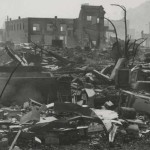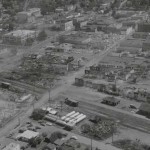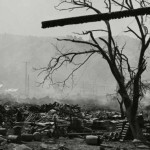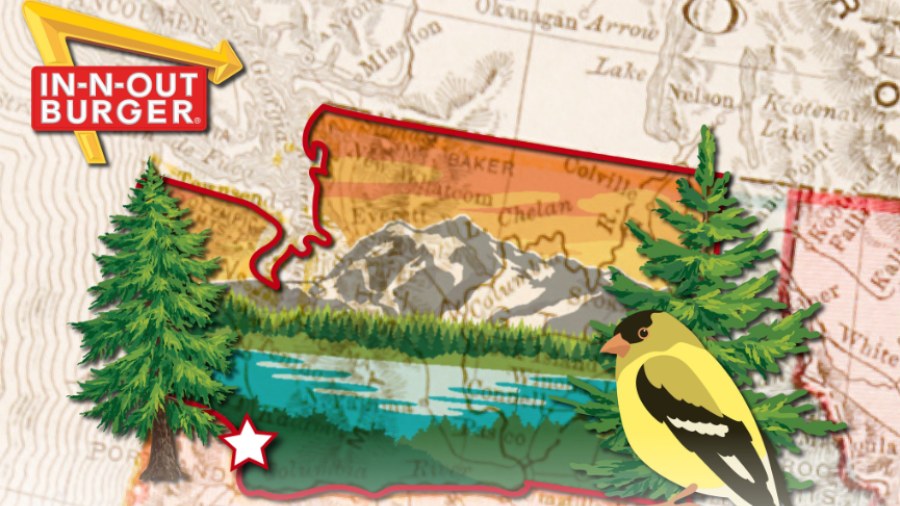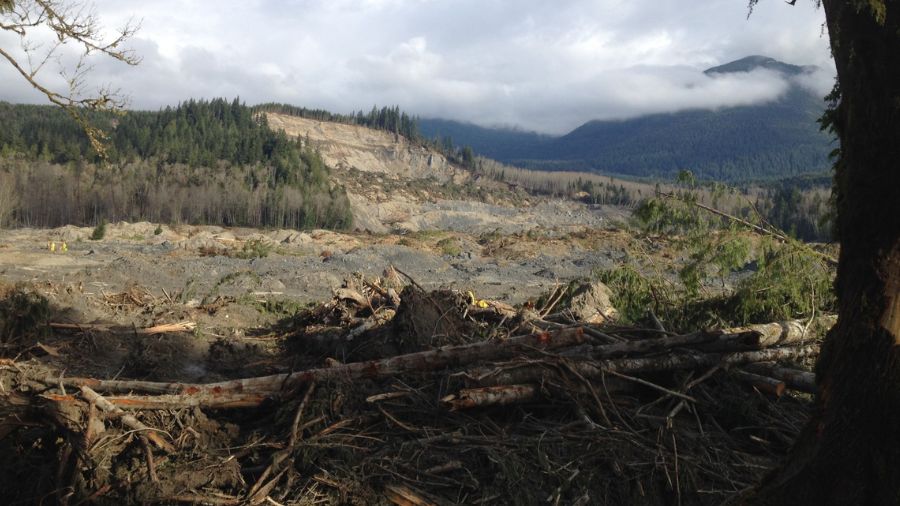Blast devastated Roseburg, Oregon 58 years ago
Aug 2, 2017, 5:55 AM | Updated: 9:28 am
In 1959, Bill Brubaker’s long career as a broadcast journalist in Portland and Seattle had not yet begun. That summer, the 21-year old Spokane native and two other students from what was then called Washington State College in Pullman got jobs helping run a radio station in Roseburg, Oregon, 70 miles south of Eugene.
“The staff had all left and the owner of the station kind of panicked,” Brubaker said. “[He] had a friend at Washington State College and [he] said, ‘Hey get a couple of your buddies and come down and run the radio station for the summer.’”
The gig gave Brubaker, Dave Cordon, and Roseburg’s Larry White plenty of hands-on experience playing records, preparing newscasts and reading commercials for the AM station that served a semi-rural community of about 12,000 people.
It also gave them a front row seat to one of the deadliest explosions in Northwest history, and a unique role in helping the community cope with and recover from the disaster.
“It was a great little station called KRXL,” Brubaker said. “It was a ‘mom and pop’ station by every definition. You opened the station [that is, began the broadcast day] in the morning because it was a ‘daytimer,’” – meaning it was permitted by the FCC to broadcast only during daylight hours.
“We did local news, and we had national news we recorded [off a back channel] and played back. [We played] music, just ‘music-music.’ It wasn’t a rock station by any stretch of the imagination,” Brubaker said, describing a common sort of “all purpose” format for many radio stations in the 1950s.
And that was how the summer went, uneventfully, until early on the morning of Aug. 7, 1959.
Karen Bratton is the collections manager and research librarian at the Douglas County Museum in Roseburg. She was a teenager that summer 58 years ago.
“A truck loaded with explosives came into Roseburg late at night, and they parked down by a building supply facility here in town and there were combustibles in a tank there, a barrel,” Bratton said. “Those caught on fire, eventually it caught the truck loaded with explosives on fire, and the truck blew up.”
Bill Brubaker was awoken by the blast at 1:14 a.m. He was living in a house just a few blocks from downtown, and the window frame of his bedroom was blown out by the force of the explosion and landed on top of him.
Right away, he and Cordon and White headed out to see what had happened.
“About two blocks from our house was a huge flour mill. As we reached the corner, the flour mill exploded,” Brubaker said. “We had to change direction fast, so we went uptown instead of heading toward where the explosion was.”
The initial explosion was so big, some witnesses reportedly thought it was a Soviet nuclear attack. In the immediate aftermath, nobody – except maybe Chehalis resident George Rutherford, the driver who’d parked the Pacific Powder Company dynamite truck from Tenino, Washington in town the night before – had any idea what had caused the blast.
“And as we worked our way uptown, we found out that [the] two other [radio] stations in the town of Roseburg … were completely destroyed.”
Brubaker says that’s when he and his buddies knew exactly what they had to do.
“I think all three of us were exhilarated [with a feeling of] ‘Wow, something’s happening,’” Brubaker said. “The ‘aha moment’ probably came when we reached the center of town and saw that the other radio stations were gone.”
That’s when Brubaker thought to himself, “Wait a minute, we have an opportunity here.”
“We decided maybe we’d better get back to our radio station and get it on the air,” Brubaker said. “So we left downtown and headed back out to the station” in the 1941 Buick he’d bought in Roseburg for transportation that summer.
KRXL, fortunately, was headquartered on the outskirts of Roseburg and survived the blast.
“The bridge that spanned the Umpqua River at Roseburg was twisted like a pretzel, you couldn’t use it,” Brubaker said, explaining how the trio had to drive several miles to another bridge across the Umpqua, and then head back toward Roseburg to reach KRXL’s combined studio and transmitter facility.
What was going through their minds as they drove through the darkness that morning?
“We were students [and] we were learning broadcast journalism,” Brubaker said. “This was a news story, obviously, and so I don’t know, I think collectively we came to the same conclusion at the same time that basically, we’ve got to get some music out there, or some noise out there, or something on the radio to let these people know that this isn’t the end of the world.”
Brubaker says that they didn’t have much to share with listeners in the way of information, but they knew that radio could play an important role in helping the community – even if it meant ignoring the fact that KRXL was a “daytimer” that wasn’t supposed to be on the air before sunrise or after sunset.
“I think we thought that if it were us out there as citizens and this happened, the first thing we’re gonna do is turn on our radio,” Brubaker said. “We believed that.”
“We went back out to the station, fired it up and put it on, and we just started talking, and we told the audience that we didn’t know what had happened,” Brubaker said. “[And] we put music on when we weren’t talking . . . it’s very hilly country around there, so they don’t get stations from Portland or anywhere, even Eugene or Corvallis.”
That morning, Bill Brubaker’s parents happened to be visiting family in Portland when they heard the news – on a Portland radio station – about what had happened overnight in Roseburg.
“We were doing reports [via telephone from Roseburg] for the station in Portland probably every hour,” Brubaker said. “And my mother heard this report that there’s been the blast in Roseburg, [and] the center of town’s been leveled, and [she] went ballistic” with worry.
“She was just absolutely was beside herself,” Brubaker said, “until my father had the presence of mind to sit her down and remind her that the report she [had] just heard was from her son.”
Brubaker, Cordon and White threw the “daytimer” rules out the window and ran KRXL around the clock for the next several days, getting positive feedback and plenty of other listener input and requests via telephone. With the three young men working in shifts, the station became a kind of virtual crossroads, cracker barrel and bulletin board for sharing information about the blast and the recovery and rebuilding efforts. The FCC never complained.
The trio collected information by phone from the police department, sheriff’s department, fire department, and they also spent time gathering stories in person in Roseburg.
“When one of us was on the air, the other two were usually in town or doing some research work to find out what was going on,” Brubaker said. “When those two guys were on the air, I’d be going into town and talking to people.”
And the town was devastated by the blast. Douglas County Museum’s Karen Bratton had been away at school when the explosion hit, but she still remembers coming back for a visit a few weeks later.
“It was like you had been bombed actually,” Bratton said. “There were so many burned trees, rubble, the big pit . . . yeah, it looked like a bomb had hit.”
Bratton says the explosion leveled nearly 13 city blocks, and that 14 people ultimately died from the fire or the blast.
“There was a huge pit where the truck was sitting,” Bratton said. “[The blast] threw debris several blocks. The axel of the truck was found in a tree several blocks away from the blast site [and it] broke glass throughout most of downtown Roseburg.”
“Many of the buildings were damaged and had to be torn down because they were unsafe, even though they weren’t right in the path of the blast,” Bratton said.
Roseburg would rebuild, though, and in short order, according to Karen Bratton.
“The city actually did recover fairly rapidly and they rebuilt all the new buildings downtown,” Bratton said. “They rerouted some of the streets … they did a lot of things that were maybe [already] in the planning, and they just went forward with them.”
“The people of Roseburg they usually all pull together as a community,” Bratton said, pointing to a more recent tragedy nearby that also left many dead.
“Just a couple of years ago, we had that horrible shooting out at Umpqua Community College,” Bratton said, where nine people died. “So yes, the community of Roseburg, they really pull together whenever there’s a tragedy. It seems like that always brings out the best in people.”
But all that was in the distant future in the days and weeks after the blast. For Bill Brubaker, the end of the summer of 1959 meant that it was time to head back to school in Pullman for his senior year.
“I think that was probably the uppermost thing in my mind as I returned to school, that I had been given this wonderful opportunity, tragic as it was, to do everything in broadcasting that I had desired to do,” Brubaker said. “To do remote broadcasts; to do interviews all over the world; to cover a major story and be in the center of it, yet not be part of it.”
“I mean, you’re 21 years old and, wow, there’s guys twice my age that never get an opportunity like that,” Brubaker said. “I think I was very aware and cognizant of the fact that I was given a great opportunity to do something.”
And Bill Brubaker ultimately had great opportunities to do many things. He went on to a long career in broadcast journalism, including decades at KOMO Radio and KOMO TV as a reporter and then evening news anchors, teamed with sportscaster Bruce King and weatherman Ray Ramsey. After leaving KOMO in the early 1980s, he served on the Snohomish County Council.
But first came the 1959-1960 school year at Pullman, and then that ever-pressing need, once again, for a summer job or maybe even something bigger.
That’s when Bill Brubaker hit the big time, scoring not just another seasonal position, but instead landing a full-time deejay gig in Spokane. Seated behind the KXLY microphone in a studio on the city’s South Hill, Brubaker spun discs of Perry Como, Percy Faith, Dean Martin and other so-called “middle of the road” favorites of that era.
But then, the station format changed, and many of the on-air staff got fired. Somehow, Brubaker survived.
“It became a rock station,” Brubaker said. “And they hired three new guys [and] put them on the air, [and] kept me and one other guy and [program director] Jerry Lange.”
But the format wasn’t the only thing that changed at KXLY. The deejays were also all given alliterative nicknames that alluded to some kind of simplified personality trait that might help create an on-air persona.
What, exactly, was Bill’s nickname as part of KXLY’s new format?
“Bashful Billy Brubaker,” he said, with a slightly audible groan.
“To this day, I don’t know why that came about that way,” Brubaker said, laughing. “I don’t have a clue.”


